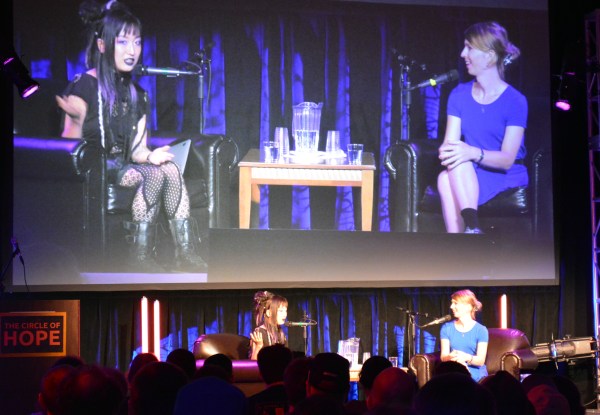Saturday’s talk schedule at the HOPE conference was centered around one thing: the on-stage interview with Chelsea Manning. Not only was a two-hour session blocked out (almost every other talk has been one hour) but all three stages were reserved with live telecast between the three rooms.
I was lucky enough to get a seat very close to the stage in the main hall. The room was packed front to back. Even the standing room — mapped out on the carpet in tape and closely policed by conference “fire marshals” — was packed with people standing shoulder to shoulder. The audience was alive with energy, and I think everyone lucky enough to be here today shares my feeling that moments like these tie our community together and help us all focus on what is important in life, as individuals and as a society.
Chelsea was very recently released from prison. So recently, that the last time this conference was held back in 2016, she and her close circle of friends were under the impression that she was very far from the end of her sentence. One such friend, Yan Zhu, joined Chelsea on stage in a comfortable armchair-setting to guide the interview.
Chelsea Manning was sentenced to serve 35 years in Leavenworth maximum-security prison, having been convicted in 2013 of violating the Espionage Act. This talk (and the article I’m writing now) was not about the events leading up to that conviction, but rather about Chelsea’s life since being released, with a bit of background on the experience of being incarcerated. Her early release came as the result of a commutation of sentence by President Barack Obama that returned her freedom just over one year ago.











